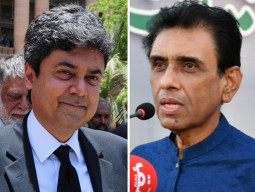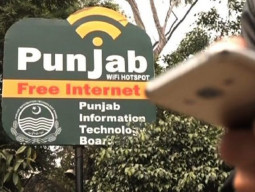
Why all this hoopla around 5G? Imagine a car is equipped with devices that track its movements: location, driving patterns and braking frequency. The gathered data is shared in real time then analysed by complex algorithms to automatically alert roadside assistance should there be a breakdown, or even to award you a ‘driving etiquette’ score that determines your insurance premiums! These sensors and algorithms already exist; but it is only when you connect them do they fuse into something much more powerful.
This connectivity is referred to as the ‘Internet of Things’. No doubt faster internet speeds will make video streaming and Instagramming easier but theoretically it will utilise less than 1% of 5G’s potential 10GBps bandwidth; the rest is required to allow seamless connectivity among devices across industries. With an estimated 40 million internet users, Pakistan exhibits vast potential as an emerging market.
However, how ready is the key stakeholder in this equation: the telecommunication industry? It is a simple case of return on investment, and the first challenge is that existing data revenues are just not lucrative enough in the Pakistani market. From a period of June 2014 to June 2016, mobile data subscribers grew by a whopping 1,631% but revenues only grew by 84% for the telecom operators in Pakistan. Per GSMA Intelligence in Q3 2018, Pakistan had the 11th highest unique subscriber base in the world — yet ranked 38th in terms of revenue.
Due to the price war in the telecom industry, Pakistan offers one of the cheapest rates for mobile data in the world. The ITU has noted such scenarios create instability for the industry since it becomes unsustainable for any telecom entity to provide services. The PTA may need to intervene at some point and set price floors for cellular services — similar to what the Telecommunication Regulatory Commission in Sri Lanka did in 2016. Similarly, despite the relaxed tax structure of the telecom industry currently, there is a dire need to revise it in order to make it feasible for all stakeholders.
With profit margins already squeezed, 5G implementation will also require substantial investment in infrastructure. In an analysis of a European country, McKinsey predicted that network related expenditures will increase 60% from 2020 to 2025. The PTA should push local operators for network and spectrum sharing that it allowed in its Telecom Policy of 2015. McKinsey projects savings of up to 40% for operators if they implement network sharing, along with solving roadblocks of 5G deployment such as visual pollution from the installation of excessive equipment.
Ultimately, telecom entities are yet to figure out reliable revenue streams based on ‘Internet of Things’ — as there is an unconducive digital ecosystem within Pakistan. Of the roughly 153 million cellular subscribers in Pakistan, only 40% utilise 3G or 4G mobile data despite coverage of these services reaching nearly 75% of the population. The nation has the baseline policies — in the form of Vision 2025, and K-P’s provincial digital policy, and the PM’s IT task force has also recommended creation of tax subsidised IT zones — and simply needs to implement them. If the entire population of over 15 years of age were internet users, Pakistan could potentially be the 4th largest internet market in the world!
The PTA wants to build an ‘information superhighway’ and they are committed to the vision; but we are struggling to implement 4G. Hence, the regulatory authority needs to have a frank dialogue with all stakeholders for sustainable implementation of next generation technology. Without a pragmatic strategy, we threaten to increase the digital divide between us and the world.
Published in The Express Tribune, February 10th, 2019.
Like Opinion & Editorial on Facebook, follow @ETOpEd on Twitter to receive all updates on all our daily pieces.








































COMMENTS
Comments are moderated and generally will be posted if they are on-topic and not abusive.
For more information, please see our Comments FAQ